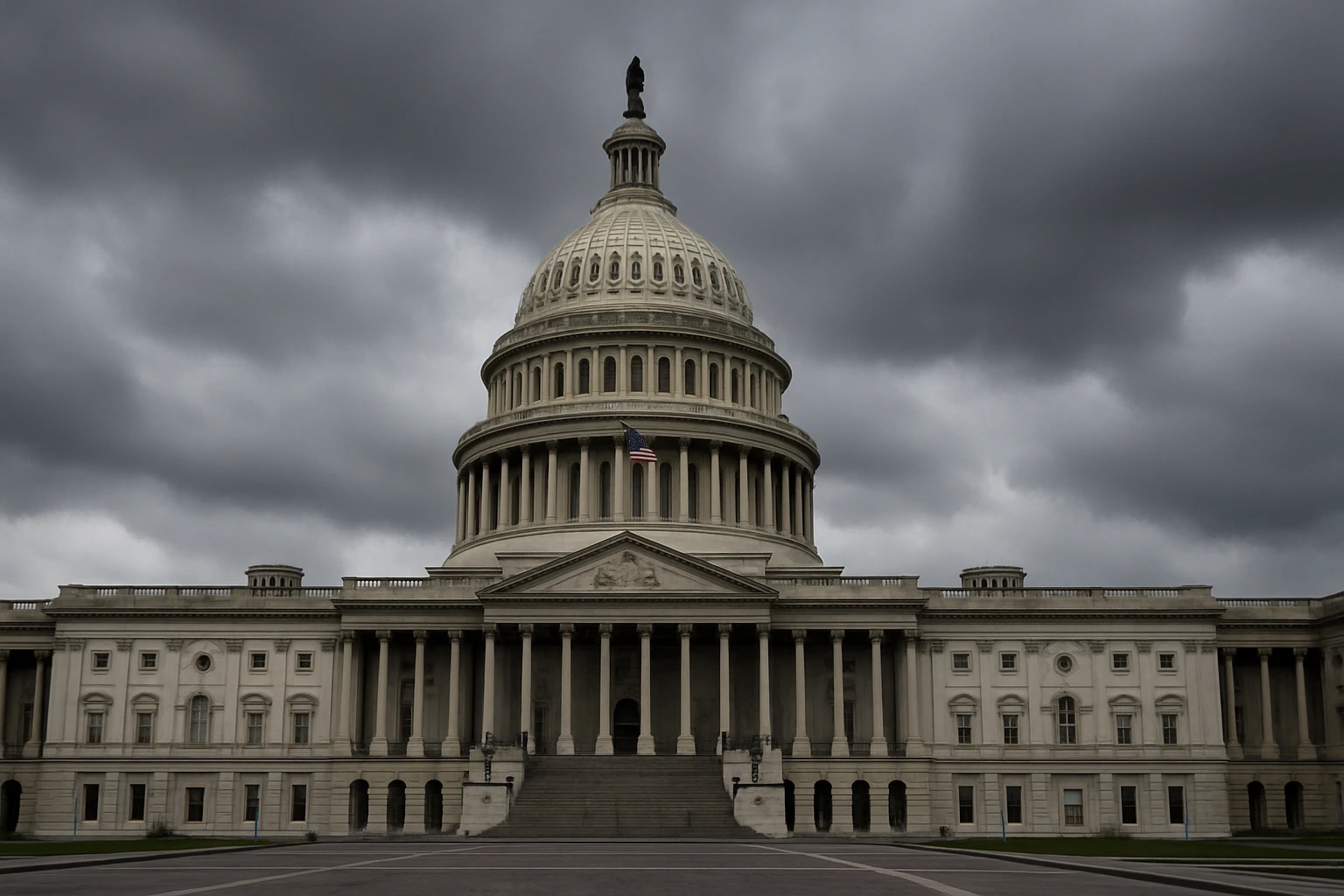WASHINGTON — As the government shutdown enters its fourth day with no deal in sight, budget experts warn that two upcoming pay dates October 10 for federal employees and October 15 for US service members could become turning points in negotiations, pressuring lawmakers to reach an agreement before the financial strain spreads across essential services.
Richard Stern, director of the Grover M. Hermann Center for the Federal Budget at the Heritage Foundation, said the shutdown could “spiral out of control” if essential government workers and troops go unpaid.
Neither party wants to shoulder the blame for missed paychecks, especially when it affects those serving the country, Stern said Friday.
The shutdown, triggered by a budget impasse between congressional Republicans and Democrats, has already halted several government operations and raised concerns over national security, air travel safety, and public services.
Political standoff over spending bill
The deadlock stems from disagreements over a temporary funding measure. House Republicans passed a seven week continuing resolution last week to keep the government open while talks continued.
Democrats rejected the proposal, demanding the inclusion of extended tax credits under the Affordable Care Act and other provisions Republicans opposed.
Democratic leaders have insisted their stance centers on protecting healthcare access. “We must ensure Americans have the healthcare they need,” Rep. Shri Thanedar, D-Mich., said in a recent viral video. “If that means we’ve got to shut the government down, so be it.”
Republicans argue that Democrats are prioritizing partisan spending over essential operations. “The GOP offered a clean seven week funding bill,” Stern said. “It was gratuitous for Democrats to demand a shutdown.”
The White House previously warned the shutdown could disrupt pay for service members, delay disaster relief, and hinder care for veterans. Officials noted that while some mandatory funding might be available, sustained closures could strain even protected programs.
According to the Defense Finance and Accounting Service and the US General Services Administration, the first federal worker pay date affected by the shutdown is October 10, followed by the military’s October 15 payroll.
“These two dates are critical,” said Rachel Bade, a former Politico reporter and congressional analyst. “Once people start missing paychecks, the political calculus changes. Pressure skyrockets when real families face financial stress.”
Bade noted that the shutdown’s impact would quickly ripple through communities. “Most people can’t go without a paycheck. For troops and essential workers, it’s not just numbers it’s livelihoods.”
Historically, missed paychecks have accelerated past negotiations. During the 2019 shutdown, bipartisan talks intensified after air traffic controllers and TSA agents faced delayed wages, raising fears of disruptions in national air travel.
While some government operations continue through mandatory spending, agencies dependent on annual appropriations are already scaling back.
The Federal Aviation Administration, for instance, has kept air traffic controllers on duty without pay, a move that could strain morale and safety oversight if the impasse persists.
Controllers will do their jobs, but stress builds quickly, said Tom Wilkins, a union representative for FAA employees. “Every day without pay is another day of uncertainty for families who keep our skies safe.”
Other federal workers from Border Patrol agents to wildfire responders face similar challenges. Many are considered “essential” and must continue working, but delayed paychecks can push households into financial hardship.
Stern cautioned that extended shutdowns risk weakening public trust in government efficiency. “The longer this continues, the harder it becomes to restore normal operations,” he said.
In Arlington, Virginia, federal contractor Maria Lopez said she’s already budgeting tightly. “We’ve been through shutdowns before, but it never gets easier,” Lopez said. “My rent’s due on the first. If my paycheck doesn’t arrive next week, I’ll have to dip into savings.”
Army Staff Sgt. James Harlow, stationed at Fort Bragg, said uncertainty over pay adds stress to his unit. “We’re still reporting for duty, but morale drops when families don’t know how to pay bills,” Harlow said.
For families living paycheck to paycheck, even short disruptions can be destabilizing. “I can handle one week,” said Carla Thompson, a single mother working for the Department of Homeland Security. “But if this drags on, I’ll have to choose between groceries and utilities.”
Financial ripple effects
According to the Congressional Budget Office, previous shutdowns have cost the economy billions in lost productivity and delayed spending. In 2019, a 35 day closure reduced quarterly GDP growth by 0.1 percentage points and cost federal workers more than $5 billion in delayed wages.
Economists warn similar outcomes could follow if this standoff persists beyond mid-October. “Government spending is a key component of local economies,” said Dr. Alan Pierce, a public policy professor at Georgetown University. “Every missed paycheck affects restaurants, childcare, and retail stores in federal hubs.”
While President Donald Trump’s administration has indicated it could use existing funds from the One Big, Beautiful Bill Act to cover certain essential salaries, experts caution such measures are temporary. “Those funds might buy time, but they don’t replace a comprehensive budget deal,” Stern said.
Both parties face mounting pressure as the calendar advances toward the key pay dates. Lawmakers from swing districts have begun urging leadership to find middle ground. “No one wins in a shutdown,” said Rep. Mark Ellison, R-Pa. “Our job is to govern, not gamble with livelihoods.”
Still, ideological divides remain deep. Democrats maintain their priorities reflect public health needs, while Republicans accuse them of inserting partisan spending demands.
With federal paydays fast approaching, experts agree the shutdown’s duration may depend less on political rhetoric and more on public reaction to missed wages.
As Stern noted, “Paychecks are the real deadline. Once those stop, the debate shifts from politics to survival.” Until then, millions of federal workers, service members, and their families wait uncertain how long they can endure the financial strain.
